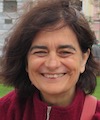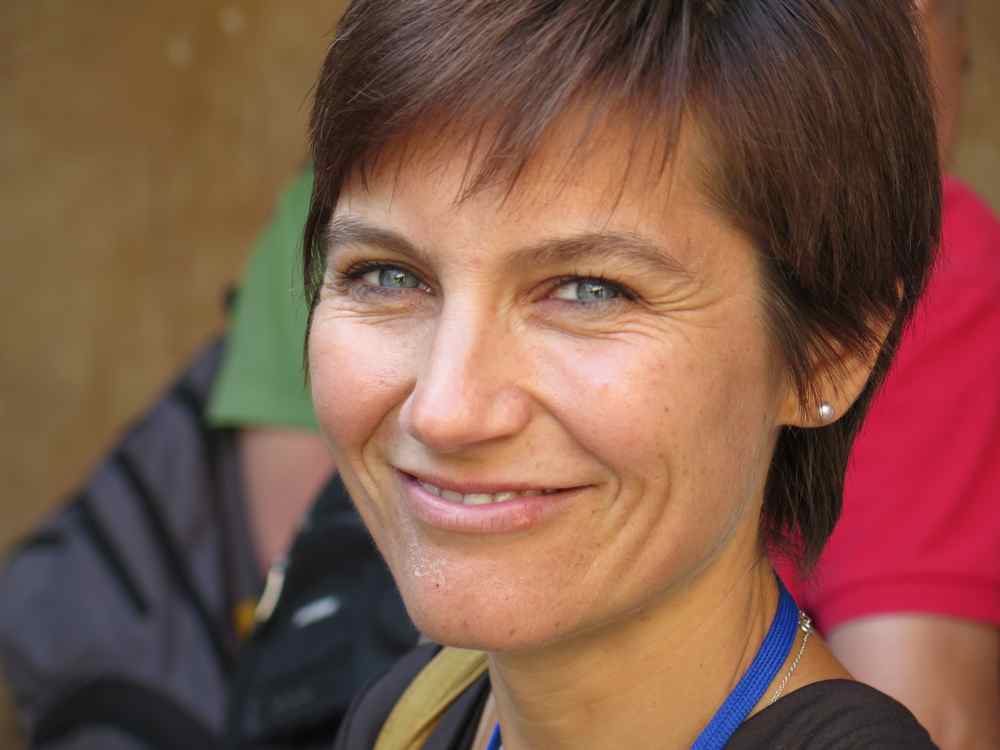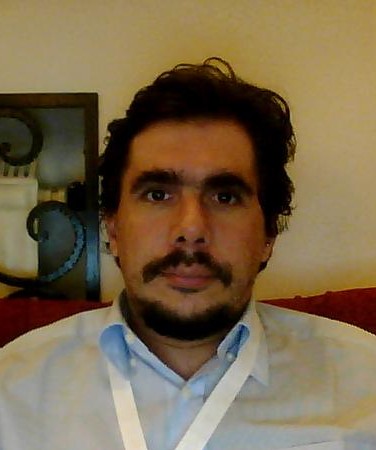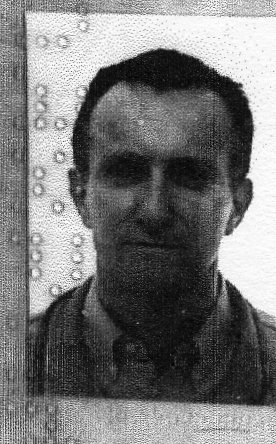Studying at the University of Verona
Here you can find information on the organisational aspects of the Programme, lecture timetables, learning activities and useful contact details for your time at the University, from enrolment to graduation.
Academic calendar
The academic calendar shows the deadlines and scheduled events that are relevant to students, teaching and technical-administrative staff of the University. Public holidays and University closures are also indicated. The academic year normally begins on 1 October each year and ends on 30 September of the following year.
Course calendar
The Academic Calendar sets out the degree programme lecture and exam timetables, as well as the relevant university closure dates..
| Period | From | To |
|---|---|---|
| I semestre | Oct 4, 2010 | Jan 31, 2011 |
| II semestre | Mar 1, 2011 | Jun 15, 2011 |
| Session | From | To |
|---|---|---|
| Sessione straordinaria | Feb 1, 2011 | Feb 28, 2011 |
| Sessione estiva | Jun 16, 2011 | Jul 29, 2011 |
| Sessione autunnale | Sep 1, 2011 | Sep 30, 2011 |
| Session | From | To |
|---|---|---|
| Sessione autunnale | Oct 19, 2010 | Oct 19, 2010 |
| Sessione straordinaria | Dec 13, 2010 | Dec 13, 2010 |
| Sessione invernale | Mar 22, 2011 | Mar 22, 2011 |
| Sessione estiva | Jul 12, 2011 | Jul 12, 2011 |
| Period | From | To |
|---|---|---|
| All Saints | Nov 1, 2010 | Nov 1, 2010 |
| National holiday | Dec 8, 2010 | Dec 8, 2010 |
| Christmas holidays | Dec 22, 2010 | Jan 6, 2011 |
| Easter holidays | Apr 22, 2011 | Apr 26, 2011 |
| National holiday | Apr 25, 2011 | Apr 25, 2011 |
| Labour Day | May 1, 2011 | May 1, 2011 |
| Local holiday | May 21, 2011 | May 21, 2011 |
| National holiday | Jun 2, 2011 | Jun 2, 2011 |
| Summer holidays | Aug 8, 2011 | Aug 15, 2011 |
Exam calendar
Exam dates and rounds are managed by the relevant Science and Engineering Teaching and Student Services Unit.
To view all the exam sessions available, please use the Exam dashboard on ESSE3.
If you forgot your login details or have problems logging in, please contact the relevant IT HelpDesk, or check the login details recovery web page.
Should you have any doubts or questions, please check the Enrollment FAQs
Academic staff
 bianca.debernardi@univr.it
bianca.debernardi@univr.it

Squassina Marco
 marco.squassina@univr.it
marco.squassina@univr.it
 +39 045 802 7913
+39 045 802 7913
Study Plan
The Study Plan includes all modules, teaching and learning activities that each student will need to undertake during their time at the University.
Please select your Study Plan based on your enrollment year.
1° Year
| Modules | Credits | TAF | SSD |
|---|
2° Year activated in the A.Y. 2011/2012
| Modules | Credits | TAF | SSD |
|---|
Due tra i seguenti insegnamenti| Modules | Credits | TAF | SSD |
|---|
| Modules | Credits | TAF | SSD |
|---|
Due tra i seguenti insegnamenti| Modules | Credits | TAF | SSD |
|---|
Legend | Type of training activity (TTA)
TAF (Type of Educational Activity) All courses and activities are classified into different types of educational activities, indicated by a letter.
Basis of mathematics (2011/2012)
Teaching code
4S000958
Teacher
Coordinator
Credits
6
Also offered in courses:
- Advanced course in Foundations of Mathematics of the course Master's degree in Mathematics
Language
Italian
Scientific Disciplinary Sector (SSD)
MAT/01 - MATHEMATICAL LOGIC
Period
I semestre dal Oct 3, 2011 al Jan 31, 2012.
Learning outcomes
To develop a critical and conscious attitude towards different views of mathematics. Reasons for, analysis, and relevance of the mathematical notions.
Program
Gödel's incompleteness theorems. Greek viewpoint of mathematics. Mathematics as a prototype of deductive science. The problem of infinity. First crisis of the foundations of mathematics. The problem of the consistency of theories. Reduction of a theory to another. Different viewpoints of mathematics: neo-platonic, logicist, formalist, constructivist. Second crisis of the foundations of mathematics. Effective computability. The problem of communicating mathematical concepts through the language. Beyond the language. How to capture and communicate concepts which are non definable through the language. The problems of objectivity, certainty and relevance of the mathematical knowledge.
Examination Methods
Oral
Type D and Type F activities
Modules not yet included
Career prospects
Module/Programme news
News for students
There you will find information, resources and services useful during your time at the University (Student’s exam record, your study plan on ESSE3, Distance Learning courses, university email account, office forms, administrative procedures, etc.). You can log into MyUnivr with your GIA login details: only in this way will you be able to receive notification of all the notices from your teachers and your secretariat via email and soon also via the Univr app.
Double degree
The University of Verona, through a network of agreements with foreign universities, offers international courses that enable students to gain a Double/Joint degree at the time of graduation. Indeed, students enrolled in a Double/Joint degree programme will be able to obtain both the degree of the University of Verona and the degree issued by the Partner University abroad - where they are expected to attend part of the programme -, in the time it normally takes to gain a common Master’s degree. The institutions concerned shall ensure that both degrees are recognised in the two countries.
Places on these programmes are limited, and admissions and any applicable grants are subject to applicants being selected in a specific Call for applications.
It's online Erasmus + - double joint degree a.y. 2024/2025
The latest Call for applications for Double/Joint Degrees at the University of Verona is available now!
For the presentation of the LA and subsequent recognition of CFUs, please refer to the International Mobility Regulations.
Documents
| Title | Info File |
|---|---|
|
|
pdf, it, 461 KB, 24/11/23 |
|
|
pdf, it, 361 KB, 23/02/24 |
Alternative learning activities
In order to make the study path more flexible, it is possible to request the substitution of some modules with others of the same course of study in Mathematics at the University of Verona (if the educational objectives of the modules to be substituted have already been achieved in the previous career), or with others of the course of study in Mathematics at the University of Trento.Documents
| Title | Info File |
|---|---|
|
|
pdf, it, 167 KB, 27/08/21 |
|
|
pdf, it, 44 KB, 30/08/21 |
|
|
pdf, it, 113 KB, 30/08/21 |
Attendance
As stated in the Teaching Regulations for the A.Y. 2022/2023, except for specific practical or lab activities, attendance is not mandatory. Regarding these activities, please see the web page of each module for information on the number of hours that must be attended on-site.
Career management
Student login and resources
Graduation
Deadlines and administrative fulfilments
For deadlines, administrative fulfilments and notices on graduation sessions, please refer to the Graduation Sessions - Science and Engineering service.
Need to activate a thesis internship
For thesis-related internships, it is not always necessary to activate an internship through the Internship Office. For further information, please consult the dedicated document, which can be found in the 'Documents' section of the Internships and work orientation - Science e Engineering service.
Final examination regulations
Upon completion of the Master’s degree dissertation students are awarded 32 CFU. The final examination consists of a written dissertation on a specific topic agreed with a supervising professor and presented to a commission (Dissertation Committee).
The dissertation can be high-level theoretical or experimental (in the latter case, it may focus on either basic or applied research), it can deal with a theoretical topic or propose the resolution of a specific problem, or description of a work project, and may be carried out at universities, research institutions, schools, laboratories and companies in the framework of internships, traineeships, study stays in Italy and abroad. The dissertation must be original and written by the student under the guidance of a Supervisor. At the request of the student, the dissertation may be written and presented in Italian.
Professors belonging to the Mathematics Teaching Committee, the Department of Computer Science, and any associated departments may be appointed as Supervisors, as well as any professors from the University of Verona whose area of interest (SSD - Scientific-disciplinary Sector) is included in the teaching regulations of the degree programme.
Students may take the final exam only if meeting all requirements set by the School of Sciences and Engineering.
The Master's degree in Mathematics is obtained by successfully passing the final examination and thus earning the 120 CFU included in the study plan.
The material submitted by the student for the final examination will be examined by the Dissertation Committee, which comprises three professors, possibly including the Supervisor, and appointed by the President of the Teaching Committee. The final examination will be assessed based on the following criteria: the student’s performance during the entire study programme, the knowledge acquired during the dissertation work, their understanding of the topic and autonomy of judgment, their ability to apply such knowledge, and communicate effectively and fully all the outcomes of the work and the main results obtained.
The final examination and the degree ceremony will be carried out, in one of the four graduation sessions throughout the academic year, by the Final Examination Committee appointed by the President of the Teaching Committee, and made up of a president and at least four members chosen from among the professors of the University.
For further information, please refer to the Final examination regulations.
Documents
| Title | Info File |
|---|---|
|
|
pdf, it, 31 KB, 02/11/22 |
|
|
pdf, en, 31 KB, 02/11/22 |
|
|
pdf, it, 171 KB, 20/03/24 |
List of theses and work experience proposals
| theses proposals | Research area |
|---|---|
| Controllo di sistemi multiagente | Calculus of variations and optimal control; optimization - Hamilton-Jacobi theories, including dynamic programming |
| Controllo di sistemi multiagente | Calculus of variations and optimal control; optimization - Manifolds |
| Controllo di sistemi multiagente | Calculus of variations and optimal control; optimization - Optimality conditions |
| Formule di rappresentazione per gradienti generalizzati | Mathematics - Analysis |
| Formule di rappresentazione per gradienti generalizzati | Mathematics - Mathematics |
| Mathematics Bachelor and Master thesis titles | Various topics |
| Stage | Research area |
|---|---|
| Internship proposals for students in mathematics | Various topics |














